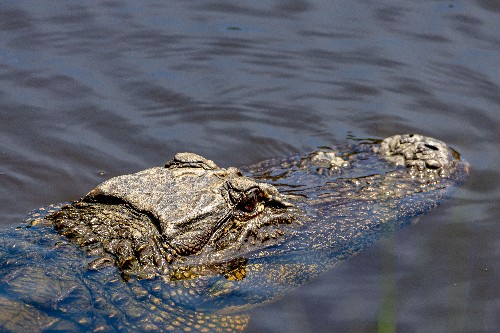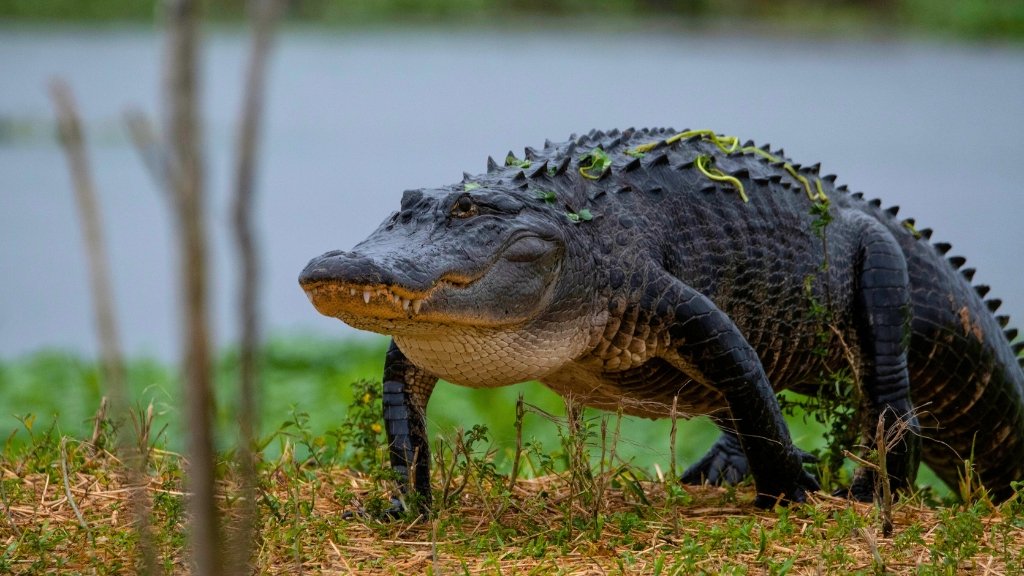On June 24, 2022, a fatal alligator attack at the Myrtle Beach Golf and Yacht Club claimed the life of 75-year-old Michael Burstein. An 11-foot alligator grabbed Mr. Burstein and dragged him into a pond near Excalaber Court in the Myrtle Beach area. Sadly, Mr. Burstein did not survive the horrific attack.

This tragedy highlights the dangers posed by large alligators in residential retention ponds. It also raises serious questions about what these residential community associations are doing (or not doing) about large alligators. This attack was one of several vicious alligator attacks in South Carolina over recent years.
The Alligator Attack at Myrtle Beach Golf and Yacht Club
At around 11:45 a.m., the massive alligator reportedly attacked Michael Burstein as he stood near a retention pond. Horry County Police Officers determined that an alligator dragged Mr. Burstein into the retention pond.
Mr. Burstein's body was recovered from the pond, and it was determined that he died from drowning during the alligator attack. The South Carolina Department of Natural Resources and a contracted alligator removal service determined that the 11-foot gator needed to be humanely euthanized on site.
The attack shocked residents who had grown accustomed to seeing large alligators in their community. One neighbor reported seeing 12 to 14-foot alligators in the retention ponds and had even photographed them wrestling just weeks before the fatal attack. The neighbor expressed concern that one of the alligators in his photos may have been the gator that took Mr. Burstein's life.
HOA Responsibilities for Retention Pond Safety
Retention ponds in residential communities can attract alligators and pose serious drowning risks. Homeowners associations and property management companies typically maintain exclusive control over these common areas. Individual residents cannot legally remove alligators or modify retention ponds for safety. Thus, the associations' exclusive control creates a duty for them to address any known hazards.
The Myrtle Beach Golf and Yacht Club had become notorious for its alligator population. Videos of alligators walking through the community received widespread media attention long before Burstein was attacked in South Carolina. Residents regularly witnessed alligators crossing roads between retention ponds.
When HOAs May Face Liability for Alligator Attacks in South Carolina
Several factors can establish HOA liability for alligator attacks in retention ponds and other community ponds and lagoons.
Known Dangerous Conditions
When HOAs know about large alligators in their retention ponds but fail to act, they potentially expose themselves to liability. The fact that residents observed 12 to 14-foot alligators long before the attack demonstrates that the association in charge of monitoring alligators should have known about these dangerous reptiles.
Failure to Remove Large Alligators
The Carolina Department of Natural Resources operates a depredation permit program allowing removal of nuisance alligators four feet or larger. HOAs that fail to obtain or use these permits when they learn about large and dangerous alligators in their communities may face liability for attacks.
Inadequate Safety Measures
HOAs can implement various safety measures including posting warning signs near retention ponds, maintaining vegetation to improve visibility, ensuring proper lighting near water features, and installing barriers where necessary. Failure to implement reasonable precautions despite knowing about dangerous alligators exposes HOAs to potential liability.
Pursuing Claims After an Alligator Attack
South Carolina premises liability law requires property owners and managers to maintain reasonably safe conditions for lawful visitors. For residents and invited guests, HOAs owe the highest duty of care. To succeed in an alligator attack claim, victims or their families must generally prove:
- The HOA knew or should have known about the dangerous alligator;
- The HOA failed to take reasonable protective measures; and
- This failure caused the attack and resulting injuries or death.
The person bringing the claim must prove each element by a preponderance of the evidence. Below are several common types of evidence plaintiffs can use to prove negligence:
- Documented alligator sightings;
- Photos or videos of large alligators;
- Previous resident complaints;
- Media coverage of the alligator population; and
- Failure to have known dangerous alligators removed.
Damages in South Carolina Alligator Attack Cases
Survivors of alligator attacks can pursue compensation for medical expenses, reconstructive surgery, physical therapy, lost wages, pain and suffering, emotional trauma, and permanent disfigurement.
In wrongful death cases after an alligator attack, families pursuing a claim can seek damages that may include:
- Loss of companionship;
- Mental anguish and grief;
- Lost financial support;
- Funeral and burial expenses; and
- The victim's conscious pain and suffering before death.
These compensatory damages are meant to compensate people for what they lost as a result of the alligator attack.
The Growing Problem of Alligator Attacks in South Carolina
The Myrtle Beach alligator attack demonstrates how dangerous these animals can be to people in residential communities. South Carolina has experienced multiple fatal alligator attacks. Below are some of the more recent and more severe attacks:
- Bonnie Walker: Killed in July 2016 by an alligator in a pond near the Brookdale Senior Living Center in West Ashley, SC near Charleston.
- Cassandra Cline: Killed on August 20, 2018 by a 9-foot alligator while walking her dog in Sea Pines Plantation in Hilton Head Island, South Carolina.
- Cynthia Covert: Killed by an alligator on May 1, 2020 in Kiawah Island, South Carolina.
- Elsie Kyle: Attacked and severely injured on September 2, 2021 by an 8-foot alligator while walking her dog in Hilton Head Plantation in Hilton Head Island, South Carolina.
- Nancy Becker: Killed by a 10-foot alligator on August 15, 2022 while she was working in her yard in the Sun City Community in Hilton Head Island, South Carolina.
- Holly Jenkins: Killed by a 10-foot alligator on July 4, 2023 while walking her dog in the Spanish Wells neighborhood in Hilton Head Island, South Carolina.
- Joseph Roeser: Viciously attacked by an alligator in the Sun City Community in Hilton Head Island, South Carolina in April 2025.
Trends in South Carolina Alligator Attacks
Each attack in recent years follows a similar pattern. Namely, we can assume that almost certainly the community associations knew about large alligators. However, they failed to take the proper steps to have those gators removed.
This trend of attacks gives us an indication of what constitutes a "dangerous alligator." Namely, each alligator in the attacks reported above was 8 feet or larger. Alligators over 8 feet are thus clearly hazards that community associations should deal with immediately.
Additionally, several of the attacks above occurred when people were walking their dogs. Accordingly, anyone walking a dog should exercise extreme caution. The communities should not only remove large gators, but they also need to put up clear warnings as an extra layer of caution. Warnings could provide extra protection for people out of town, who are often unfamiliar with the strength, speed, and overall danger of alligators.
Contact a South Carolina Alligator Attack Lawyer
If an alligator has attacked you or a loved one in South Carolina, the HOA, property management company, or community association where the attack occurred may be liable for damages. We hold these entities accountable when they fail to protect residents from preventable alligator attacks.
In our experience handling these cases, we know that these entities almost always know about the dangerous gators. Yet, they do not take any actions to mitigate the danger, at least until after the attack.
Call us at 321-LAWSUIT for a free consultation, and we will make sure you speak with a lawyer at our office. If we can help you, you don't have to pay us anything until we recover money for you.
